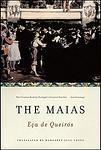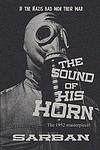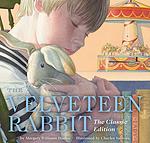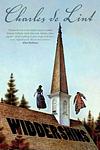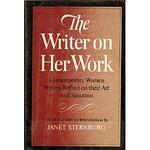The Greatest Portuguese, Unknown Books of All Time
Click to learn how this list is calculated.
This list represents a comprehensive and trusted collection of the greatest books. Developed through a specialized algorithm, it brings together 300 'best of' book lists to form a definitive guide to the world's most acclaimed books. For those interested in how these books are chosen, additional details can be found on the rankings page.
Genres
Countries
Date Range
Reading Statistics
Click the button below to see how many of these books you've read!
Download
If you're interested in downloading this list as a CSV file for use in a spreadsheet application, you can easily do so by clicking the button below. Please note that to ensure a manageable file size and faster download, the CSV will include details for only the first 500 books.
Download-
1. Epic of Gilgamesh by Unknown
This ancient Mesopotamian epic follows the story of Gilgamesh, a demigod king who rules over the city of Uruk. Unhappy with his reign, the gods create a wild man named Enkidu to challenge him. However, Gilgamesh and Enkidu become close friends and embark on several adventures together, including defeating the demon Humbaba and killing the Bull of Heaven. After Enkidu's death, Gilgamesh becomes obsessed with finding immortality, leading him on a journey to meet Utnapishtim, the only human who has been granted eternal life. The narrative explores themes of friendship, mortality, and the meaning of life.
-
2. Beowulf by Unknown
"Beowulf" is an Old English epic poem that tells the story of the eponymous hero, a Geatish warrior who comes to the aid of Hrothgar, the king of the Danes, whose mead hall is under attack by a monster known as Grendel. Beowulf fights and defeats Grendel and his mother, earning the gratitude and friendship of Hrothgar. Later in his life, Beowulf becomes king of the Geats and faces his final battle with a deadly dragon. The poem explores themes of heroism, fate, and mortality, and is considered one of the most important works of Old English literature.
-
3. The Book of Disquiet by Fernando Pessoa
"The Book of Disquiet" is a posthumously published collection of thoughts and musings of a solitary dreamer, who is a Lisbon-based bookkeeper. The book delves into the mind of a man who is discontented with his mundane life and finds solace in dreaming and writing. The narrative is a profound reflection on life, solitude, and the nature of humanity, filled with philosophical insights and poetic language. The protagonist's introspective journey and his struggles with existential despair make it a seminal work in the genre of literary modernism.
-
4. Night by Elie Wiesel
This book is a memoir of the author's experiences during the Holocaust, specifically in the Auschwitz and Buchenwald concentration camps. The narrative focuses on the relationship between a father and son under the most extreme circumstances, the loss of faith in God, humanity, and in each other, and the horrifying reality of the systematic genocide of six million Jews during World War II. The book is a poignant and stark examination of the depths of human evil and the enduring power of hope and survival.
-
5. Mythology by Edith Hamilton
This book is a comprehensive guide to ancient Greek, Roman, and Norse mythologies, providing detailed accounts of various gods, goddesses, heroes, and other mythological creatures. It includes well-known stories like the Odyssey and the Iliad, along with lesser-known tales, and analyzes their significance in the cultures they originated from. The book also delves into the origins of these myths and their influence on later civilizations, offering readers a deep understanding of ancient cultures and their belief systems.
-
6. The Lusiad by Luís Vaz Camões
"The Lusiad" is an epic poem that chronicles the historic voyage of Vasco da Gama, who discovered a sea route from Portugal to India in 1497-1498. The narrative is filled with both historical events and fantastical elements, including sea monsters and divine intervention. The story celebrates Portugal's maritime exploration and its heroes, while also reflecting on the human condition and the nature of life, destiny, and the cosmos.
-
7. The Year of the Death of Ricardo Reis by José Saramago
The novel is a metaphysical narrative about a doctor named Ricardo Reis who returns to Lisbon, Portugal after learning about the death of his friend. He finds himself in a society on the brink of dictatorship, and as he navigates through his daily life, he encounters his deceased friend's ghost and a hotel maid with whom he begins a love affair. The book explores themes of identity, love, and the nature of reality, set against the backdrop of political turmoil.
-
8. The Maias: Episodes from Romantic Life by Eça de Queirós
"The Maias: Episodes from Romantic Life" is a compelling narrative set in Lisbon in the late 19th century that follows the lives of a wealthy Portuguese family, the Maias. The story centers around the romantic and professional life of Carlos Maia, but also includes a rich cast of secondary characters. The plot includes themes of love, betrayal, disillusionment, and tragedy, all set against the backdrop of a rapidly changing Portuguese society. The novel is also a critique of the decadence and stagnation of Portuguese society at the time.
-
9. Blindness by José Saramago
In this dystopian novel, an unexplained epidemic of "white blindness" sweeps through an unnamed city, causing chaos and panic. The government responds by quarantining the afflicted in an abandoned mental hospital, where conditions quickly deteriorate into violence and squalor. Amid the despair, one woman mysteriously retains her sight and guides a small band of the blind, including her husband, through the harrowing ordeal. The novel explores themes of loss, human nature, and the fragility of civilization.
-
10. Baltasar and Blimunda by José Saramago
"Baltasar and Blimunda" is a historical love story set in 18th century Portugal. The narrative follows a maimed soldier, Baltasar, and a young clairvoyant woman, Blimunda, as they navigate the hardships of life during the Inquisition. Their love story is intertwined with the construction of the Convent of Mafra, a grandiose project initiated by the King. The novel explores themes of love, faith, human resilience, and the struggle against political and religious oppression.
-
11. The Crime of Father Amaro by Eça de Queirós
Set in 19th century Portugal, this novel follows the life of a young priest, Father Amaro, who is posted in a provincial parish. Despite his religious vows, he falls in love with a beautiful girl, Amelia, who is also the daughter of his landlady. Their forbidden love affair results in Amelia's pregnancy, leading to tragic consequences. The novel vividly portrays the corruption within the Catholic Church and the hypocrisy of the society.
-
12. Legend by David Gemmell
In a post-apocalyptic world, an aging warrior known as Druss comes out of retirement to defend his homeland from invading hordes. Despite his advanced age, he is still a formidable fighter and is revered as a living legend. As he prepares for a seemingly impossible battle, he must confront not only his enemies but also his own personal demons and the specter of his own mortality. The novel is a compelling blend of action, adventure, and introspection, exploring themes of heroism, honor, and the human capacity for courage in the face of overwhelming odds.
-
13. The Sound Of His Horn by Sarban
"The Sound of His Horn" is a dystopian science fiction novel set in a future where the Nazis have won World War II. The story follows Alan Querdilion, a British prisoner of war who wakes up in a bizarre alternate reality ruled by a cruel and sadistic Nazi regime. As he navigates this nightmarish world, Querdilion must confront his own survival instincts and grapple with the moral implications of his actions. With its haunting atmosphere and thought-provoking exploration of power and humanity, the novel offers a chilling and unsettling reflection on the consequences of totalitarianism.
-
14. The Velveteen Rabbit by Margery Williams
"The Velveteen Rabbit" is a heartwarming children's book about a stuffed rabbit who longs to become real. Through his encounters with other toys and his friendship with a young boy, the rabbit learns about love, loyalty, and the true meaning of being alive. With beautiful illustrations and a touching narrative, this timeless tale teaches valuable lessons about the power of imagination and the transformative nature of love.
-
15. Widdershins by G. Oliver Onions
"Widdershins" is a gripping psychological thriller that follows the life of a troubled young woman named Alice. Haunted by a traumatic childhood event, Alice finds herself drawn into a mysterious world of dark secrets and supernatural occurrences. As she delves deeper into the enigmatic past of her family, Alice must confront her own demons and unravel the truth before it consumes her. With its atmospheric setting and complex characters, "Widdershins" is a chilling tale of suspense and self-discovery.
-
16. The Last Bouquet by Marjorie Bowen
"The Last Bouquet" by Marjorie Bowen is a captivating historical novel set in 18th-century France. The story follows a young woman named Genevieve, who finds herself caught in the midst of the French Revolution. As chaos and violence engulf the nation, Genevieve's life takes a dramatic turn when she becomes entangled with a group of revolutionaries. Faced with difficult choices and dangerous secrets, she must navigate a treacherous path to protect her loved ones and find her own freedom. Bowen's vivid storytelling and rich historical detail bring this tumultuous period to life, offering a compelling tale of love, sacrifice, and resilience.
-
17. The Writer on Her Work by Janet Sternburg
"The Writer on Her Work" is a collection of essays by various female authors who discuss their experiences, challenges, and perspectives on writing. The book explores the complexities of being a woman in the literary world, shedding light on topics such as gender bias, the struggle for recognition, and the balance between personal life and professional aspirations. It provides a unique insight into the creative process, revealing how these women navigate their craft amidst societal expectations and personal obstacles.
-
18. Labyrinths by Christopher Okigbo
"Labyrinths" is a collection of poetry that delves into the complexities of identity, love, and the human experience. Through vivid imagery and lyrical language, the poems explore themes of cultural heritage, spirituality, and the impact of colonialism. With a profound sense of introspection, the author invites readers on a journey through the labyrinth of his mind, offering a glimpse into the depths of his emotions and the intricate web of his thoughts.
-
19. December Bride by Sam Hanna Bell
"December Bride" is a poignant and captivating novel set in rural Northern Ireland during the early 20th century. The story follows the life of a young woman named Sarah, who finds herself caught between tradition and her own desires. As she navigates the complexities of love, family, and societal expectations, Sarah must make difficult choices that will shape her future. With its vivid descriptions and richly drawn characters, this book explores themes of identity, sacrifice, and the enduring power of love.
-
20. Black List, Section H by Francis Stuart
"Black List, Section H" is a gripping and thought-provoking novel that delves into the complex themes of identity, loyalty, and the consequences of war. Set during World War II, the story follows a group of individuals who find themselves entangled in a web of espionage and betrayal. As they navigate the treacherous landscape of Nazi-occupied Europe, their loyalties are tested, and they must confront the moral dilemmas that arise when faced with impossible choices. With its rich character development and atmospheric setting, this book offers a compelling exploration of the human spirit in the face of adversity.
-
21. All But My Life by Gerda Weissmann Klein
"All But My Life" is a poignant memoir of a young woman's six-year ordeal as a victim of Nazi cruelty. The narrative follows her life from a peaceful, upper-middle-class childhood in Bielitz, Poland, through her horrifying experiences and loss during the Holocaust, to her miraculous survival and marriage to an American soldier. It is a story of courage, resilience, and the enduring power of hope.
-
22. The Gospel According To Jesus Christ by José Saramago
This novel offers a provocative and humanized retelling of the life of Jesus Christ, diverging from traditional biblical narratives. It presents a Jesus who is all too human, grappling with the complexities of life, love, and a sense of destiny. Through a blend of biblical lore and imaginative fiction, the story explores themes of divinity, free will, and morality, challenging readers to reconsider the foundations of faith and the nature of storytelling itself. The narrative delves into Jesus's relationships, his encounters with figures such as God and the Devil, and ultimately portrays a deeply philosophical and introspective version of a figure central to Western civilization.
-
23. The Land At The End Of The World by António Lobo Antunes
This novel is a poignant and harrowing account of the Angolan War of Independence from the perspective of a disillusioned Portuguese medic. Through a series of barroom confessions to an unnamed interlocutor, the narrator recounts his experiences of the brutal conflict, the horrors he witnessed, and the impact it had on his psyche. The narrative is a blend of vivid war memories and reflections on the post-war life, exploring themes of love, loss, and the haunting legacy of colonialism. The author's rich, poetic language and innovative storytelling techniques create a powerful, immersive experience, capturing the futility of war and the indelible scars it leaves on individuals and nations alike.
-
24. Fado Alexandrino by António Lobo Antunes
"Fado Alexandrino" is a complex narrative that follows the lives of four Portuguese men who meet at a dinner in Lisbon to commemorate their return from the colonial war in Mozambique ten years prior. Each man, representing different social classes, recounts his life before, during, and after the war, revealing their personal struggles and the impact of the war on their lives. The novel also reflects the political and social changes in Portugal from the dictatorship era to the revolution and its aftermath.
-
25. The Works Of Johannes Bobrowski by Johannes Bobrowski
This book is a comprehensive exploration of the literary contributions of Johannes Bobrowski, a significant figure in 20th-century literature. Through detailed analysis and commentary, the author, Ivan Bobrovsky, delves into Bobrowski's poetic and narrative works, highlighting his profound engagement with history, memory, and the landscapes of Eastern Europe. Bobrovsky's examination not only sheds light on the thematic and stylistic nuances of Bobrowski's writing but also situates his oeuvre within the broader context of European literature, revealing the depth and complexity of his engagement with the tumultuous history of the region. Through this meticulous study, the reader gains insight into Bobrowski's unique literary voice and his enduring legacy as a writer deeply attuned to the nuances of human experience and historical memory.
Reading Statistics
Click the button below to see how many of these books you've read!
Download
If you're interested in downloading this list as a CSV file for use in a spreadsheet application, you can easily do so by clicking the button below. Please note that to ensure a manageable file size and faster download, the CSV will include details for only the first 500 books.
Download






